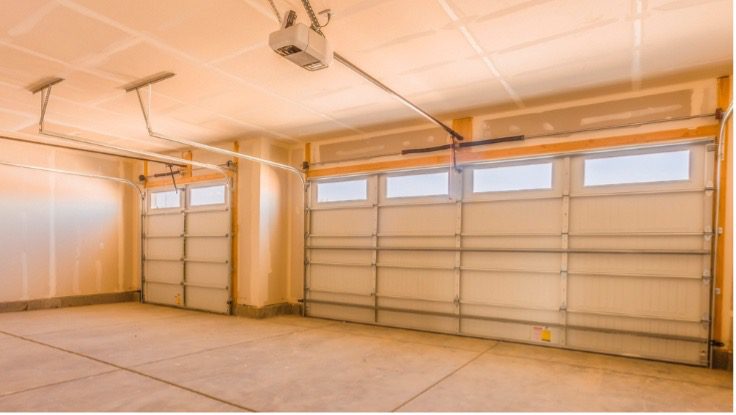Why Insulating Your Garage is a Smart Investment in Cold Climates

When temperatures drop in cold climates, many homeowners focus on insulating their living spaces but often overlook their garages. However, insulating your garage is a smart investment that can provide numerous benefits, from improving energy efficiency to protecting your belongings. If you live in a region with harsh winters, such as Northern Illinois, ensuring your garage is well-insulated can enhance comfort and reduce overall heating costs.
1. The Importance of Garage Insulation in Cold Climates
Your garage plays a crucial role in your home’s thermal performance. A poorly insulated garage can let in cold air, making adjacent rooms colder and forcing your heating system to work harder. Proper insulation helps to:
- Maintain a stable temperature inside the garage
- Prevent cold drafts from entering your home
- Reduce energy consumption and lower utility bills
- Protect your vehicles, tools, and stored items from extreme temperatures
2. Energy Efficiency and Cost Savings
One of the biggest benefits of insulating your garage is improved energy efficiency. If your garage shares walls with living spaces, cold air can seep in, causing your HVAC system to work overtime. Insulating your garage can:
Ready to start your insulation project?
- Lower heating costs by reducing heat loss
- Improve indoor comfort in adjacent rooms
- Enhance the overall energy efficiency of your home
By investing in garage insulation, homeowners in Northern Illinois can enjoy long-term savings on their utility bills while keeping their homes warm during the frigid winter months.
3. Types of Insulation for Your Garage
There are several insulation options to consider when insulating your garage. Choosing the right type depends on your garage’s structure, budget, and insulation needs.
Fiberglass Batt Insulation
- Affordable and easy to install
- Works well for walls and ceilings
- Should be used with a vapor barrier in cold climates
Spray Foam Insulation
- Offers superior insulation and air-sealing properties
- Expands to fill gaps and cracks, preventing heat loss
- Ideal for unfinished walls and ceilings
Rigid Foam Board Insulation
- Provides high R-values per inch of thickness
- Great for garage doors and walls
- Helps reduce heat transfer effectively
Blown-In Cellulose Insulation
- Eco-friendly and made from recycled materials
- Good for insulating garage attics
- Provides excellent thermal resistance
4. Garage Door Insulation: A Key Component
One of the most overlooked areas when insulating a garage is the garage door. Traditional garage doors provide minimal insulation, allowing cold air to penetrate easily. Insulating your garage door helps:
- Reduce heat loss and improve energy efficiency
- Keep your garage temperature stable
- Protect vehicles and stored belongings from freezing temperatures
Consider using insulated garage doors or adding an insulation kit to your existing door for enhanced thermal performance.
5. Protecting Your Vehicles and Stored Items
A cold garage can take a toll on your vehicles and stored belongings. Freezing temperatures can:
- Reduce your car battery’s efficiency
- Thicken engine oil, making it harder for your vehicle to start
- Cause condensation buildup, leading to rust and corrosion
- Damage temperature-sensitive items such as paint, tools, and electronics
By insulating your garage, you create a controlled environment that helps protect your valuable assets from extreme winter conditions.
6. Improved Comfort for Workspaces
If you use your garage as a workshop, gym, or home office, insulation is essential for maintaining a comfortable environment. Without proper insulation, working in your garage during the winter can be unbearable. Insulation provides:
- A stable temperature for year-round use
- Noise reduction from outside elements
- Improved air quality by minimizing moisture buildup
Whether you’re fixing your car, working on DIY projects, or exercising, an insulated garage makes these activities much more comfortable.
7. Preventing Moisture and Mold Issues
Cold climates often come with high humidity levels, which can lead to moisture problems in an uninsulated garage. Condensation buildup can cause:
- Mold and mildew growth
- Wood rot and structural damage
- Damage to stored items and tools
Adding insulation helps regulate temperature and reduce condensation, preventing costly moisture-related issues.
8. Enhancing Home Value and Marketability
An insulated garage can also increase your home’s value. Homebuyers in cold climates are often willing to pay more for homes with energy-efficient features. A well-insulated garage can:
- Boost curb appeal and attract buyers
- Improve the overall energy rating of your home
- Provide an additional usable space for various activities
Investing in insulation is a cost-effective way to enhance both your home’s comfort and resale potential.
9. Professional Installation vs. DIY Insulation
While some homeowners may attempt a DIY insulation project, hiring professionals like Koala Insulation of Northern Illinois ensures the job is done correctly. Professional insulation services provide:
- Expert evaluation of insulation needs
- High-quality materials tailored to your home
- Proper installation to maximize efficiency
- Compliance with local building codes and safety standards
Conclusion
Insulating your garage is a smart investment that offers energy savings, improved comfort, and better protection for your belongings. Whether you’re looking to lower your heating bills or create a more functional space, proper insulation is the key to maximizing your garage’s efficiency in cold climates.
Call us at (847) 563-7811 or visit our website for a free estimate. Let Koala Insulation of Northern Illinois help you transform your garage into a well-insulated, energy-efficient space!
Find Your Location


Get a quote


